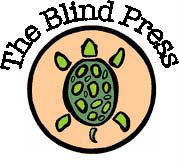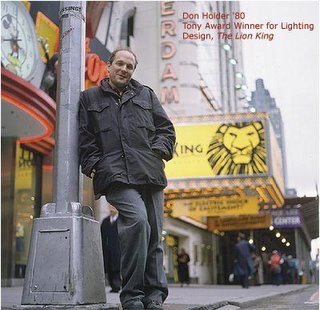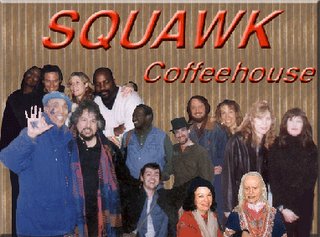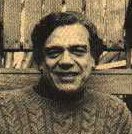Review of "Baby Beat Generation & The 2nd San Francisco Revolution"
Find Web Home of Charles P. Ries at
http://www.literati.net/Ries/___________________________________________________________
Baby Beat Generation & The 2nd San Francisco Renaissance
Publisher - La Main Courante // France
Editor and Translator - Mathias de Breyne
272 pages / $20
ISBN: 2-913919-24-3
Order via:
Small Press Distribution
1341 Seventh Street
Berkeley, CA 94710-1409
510-524-1668
www.spdbooks.orgE-mail:
http://by106fd.bay106.hotmail.msn.com/cgi-bin/compose?mailto=1&msg=83A52BA8-F673-41CB-88DB-2984B4C9F5D7&start=0&len=1193810&src=&type=x&to=orders@spdbooks.org&cc=&bcc=&subject=&body=&curmbox=00000000-0000-0000-0000-000000000001&a=39d3a4f2d2d881f5af86958493adbf8338cc7cdfc59d714d672a259dadf2c7a6Review By: Charles P. Ries
Word Count: 1,783 (Word count does not include header, bio or addendum)
If you want to taste the Beat Poets and sample the writers who followed them, Baby Beat Generation & The 2nd San Francisco Renaissance is about as good as it will get. The work in this collection is of high quality. I’m not sure why this surprised me. I have read many anthologies and usually come away with a 50% sense of satisfaction, but not this time so I asked Thomas Rain Crowe whose work is featured in the collection and whose preface helped to established historic context. He told me, “Looking back, now I think the poetry that came out of the 2nd San Francisco renaissance is still some of the best, and most interesting, poetry of the last thirty years. These were talented, dedicated, and extremely literate poets, some of whom were 'well educated', but all of whom were very well read and had been writing for quite a long time, even though many of us were only in our mid-late twenties. This was a very diverse group of poets, who wrote in uniquely different styles from one another and from their beat friends and mentors.” The book includes poems by Lawrence Ferlinghetti, Gary Snyder, Jack Micheline, Jack Hirschman, Harold Norse, Diane Di Prima, Nanos Valaoritis, Michael McClure, Bob Kaufman and David Meltzer on the beat side, and poetry by Thomas Rain Crowe, Ken Wainio, Neeli Cherkovski, David Moe, Janice Blue, Paul Wear, Luck Breit, Kaye McDonough, Philip Daughtry, Kristen Wetterhahn, Jerry Estrin, and Roderick Iverson, as well as pictures and an attached CD which includes readings by Lawrence Ferlinghetti, Diane Di Prima, Bob Kaufman, Jack Hirschman, Jack Micheline, Thomas Rain Crowe, Michael Lorraine, Cole Swenson and Ken Wainio.
I sensed Crowe’s significant presence in this publication and asked if he was the driving force behind it and how the hell did a French Press become the publisher for an anthology focused on American poets? He told me, “While it's true that I was the main contact and the supplier of much of the raw material that made its way into the anthology, this isn't a "Thomas Rain Crowe" production. Mathias de Breyne was the catalyst and initiator of the project. This anthology was his idea. He contacted me and asked for material--which he then chose from and translated into French. He was familiar with the publisher of La Main Courante, Pierre Courtaud, and it was Mathias de Breyne who contacted Monsieur Courtaud and proposed the idea of such an anthology. M. Courtaud's press, La Main Courante is primarily a press that publishes contemporary French poets. It's a relatively small literary press, and so this project was the largest project that he had undertaken to date. I did write a preface for the book, since M.de Breyne wanted something that would allow readers to get a glimpse into the whole scene in San Francisco during the 70s. And I did assist with problem areas of the translations. But this book was generated in France by a French poet and a French publisher--which is ironic in one sense and appropriate in another.”
All the content in this collection appears in English and in French. As I counted up the contributors to the anthology I totaled 29 men and 7 women. So where were the women? It was the 70’s and feminism was coming of age, yet an anthology focused on the 70’s features mainly male poets. I asked Kaye McDonough whose work is featured in this collection to comment on the state of women’s poetry in the 70’s, “I think the North Beach lifestyle itself was hard on women. You had to be able to live poor and like it -- handle yourself in a bar, walk alone on the street at any hour, and rely on no one. You had to take care that you weren't an alcohol or drug casualty -- and that you could keep up with all those poets and what they read, and they read plenty. You had to be able to read your poetry to rooms full of mostly men who were not shy about giving you feedback. The womanizing was a definite minus. Where I came from, women did not go about unescorted at night, let alone into a bar, so North Beach wasn’t exactly a place to settle down and start a family-- I'm not sure I knew what in the heck I was after – alcohol certainly played a role. I think I wanted to live like a man – a man who was a poet.” (An extended quote from Kaye McDonough can be found at the conclusion of this review.) This excerpt from her poem, “Talk To Robert Creely About It” is telling, “Breast are your bonbons / You suck a lemon fondant / spit out a chocolate-covered cherry / You try on vaginas like finger rings / The pearl cluster is too loose perhaps / the gold band too tight / You collect hearts like paintings / They are nailed to your walls / Skulls ring your house / They are the ivory necklace / fallen from the throat of your latest lady // Women lie around you like mirrors / You pick up one, then another / comb your hair, adjust your features in their glass / Do you see, you grow thin / from wanting some love on your bones?” (Beatitude #24, 1975)
I wanted to hear a male’s take on this gender imbalance and asked Thomas Rain Crowe if he would comment. “No one was counting in those days. There were a lot of women writing and involved in the 70s scene. Not all of whom got into the anthology, just as not all of the male writers in the bay area got into the book. It always felt like there was an equal balance of men and women (masculine and feminine energy) involved in everything we did. There certainly was a very strong feminine voice in North Beach and in the issues of Beatitude during those years. As I say, who was counting? If you look at the posters for Beatitude events and at the issues of Beatitude during those years, you'll see that there were always a healthy, if not equal, number of women represented. It didn't feel like anyone was fighting for position, etc. those that were on the scene and who wanted to take part publicly were the ones that ended up on the reading posters and in the many bay area publications during those years.” I am sure the answer lies somewhere between McDonough and Crowe’s perception of the time, but it presented an interesting back story and sent my mind rambling to today’s small press scene where I often sense a lack of female poets and editors, yet realizing women write more poetry. So why aren’t they publishing? Why aren’t they fighting for an audience?
I needed to find out about Beatitude. The small press magazine started in the 1950’s and picked up in the 1970’s which became the glue for these new post-beat poets. Again here is Thomas Rain Crowe, “Beatitude was the glue as you put it, for our group, and also for this anthology. Since Beatitude was at the center, the core, of the 70s renaissance, and a catalyst for the renaissance, the editor and publisher of Baby Beat Generation & The 2nd San Francisco Renaissance decided that this anthology would hinge on the Beatitude poets--since we were in closest proximity to the Beats and were working and playing with them constantly during those years, and since Beatitude was the first beat publication during the 1950s. It was us babies that resurrected the magazine. The publisher and editor wanted to cite and establish a viable tradition, with the passing down of the Beat heritage and the Beat "torch" as it were, to the next generation. This book establishes that tradition and documents the history of this "rite of passage." We published usually 500 copies of each issue of Beatitude. It was done in the mimeograph format of the former 50s Beatitude, and was distributed to bookstores all over the bay area, as well as to select bookstores all over the country--including LA, the Northwest Coast, Chicago, New York, Canada, and England. I was in charge of the distribution during those years, and the emphasis was not to make money, but to get the magazine out and as far-reaching as possible. We usually sold enough copies to pay for the next issue. But mainly is was about the poetry and showing others in the states and in other countries what we were doing. The magazine came out as often as was possible. There was no concrete publication schedule, as there is in most literary journals these days. In other words, it wasn't biannual, quarterly, etc. since we used a rotating editorship policy; it came out as quickly as each different editor could accrue text and get it through production.”
“Finally, I asked Crowe to tell me what he viewed as the key style and content distinctives between the Beats and Baby Beats? “While there would be some inevitable similarities, there are also some very distinct differences between us (the baby beats) and the beats. I think that, in general, our writing is much more imaginative and experimental--reflecting the values and cultural politics of the 1960s. I also think that the general oeuvre of the Baby Beats has a much wider arc. Our major influences tend to be more international--since there were more translations of foreign poets available in the 60s and 70s than there had been in the 40s and 50s. Also, we were more politically active, I think, than the beats. Our generation had a history of taking the issues of the time to the streets. We continued that during the 70s in San Francisco, and afterwards. Much of what we did, publicly, was usually for some cultural or political cause outside of the purely literary. I also think that we tended, and still tend, to be more inclusive. Inclusive of women. Inclusive of foreigners, inclusive of different literary styles and persuasions, inclusive of class and race, etc.”
As a reader of poetry, I can often say, I enjoyed that, but not as often say, I enjoyed that and I learned a lot along the way. This is a great collection for many reasons and on many levels. The poetry is outstanding, the bio’s, photos, preface and CD provide wonderful historic context. It also made me reflect on women’s role in poetry in the 1950-1970’s in a wider framework. $20 plus shipping is not too much to pay for this very good, very enlightening read.























































